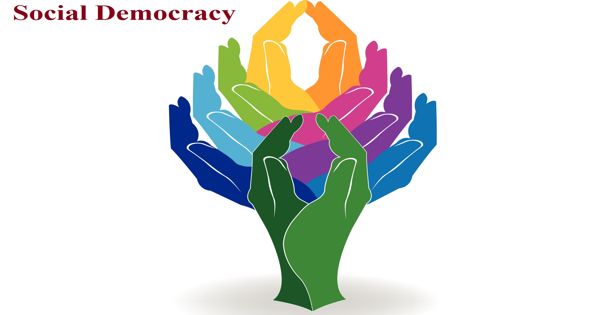Society is a place where all people are equal, and any society that does not promote that is neither a good nor a just society. Social democracy is a political, social, and economic philosophy within socialism that supports political and economic democracy. It is a political ideology that originally advocated a peaceful evolutionary transition of society from capitalism to socialism using established political processes. As a policy regime, it is described by academics as advocating economic and social interventions to promote social justice within the framework of a liberal-democratic polity and a capitalist-oriented mixed economy. Social democrats share a similar view of human nature with the Marxists. For social democrats, human beings are social beings, and it is through social interaction that they achieve their fullest potential.
Social democracy is an ideological view that wishes to humanize capitalism in the interests of social justice. It was originally known as revisionism because it represented a change in basic Marxist doctrine, primarily in the former’s repudiation of the use of revolution to establish a socialist society.
In terms of economic policy, social democrats believe strongly in the virtues of co-operation between the government, the unions, and management. Based on 19th-century socialism and the tenets of Karl Marx and Friedrich Engels, social democracy shares common ideological roots with communism but eschews its militancy and totalitarianism. The protocols and norms used to accomplish this involve a commitment to representative and participatory democracy, measures for income redistribution, regulation of the economy in the general interest, and social-welfare provisions. Social welfare is a fundamental part of society, and as the democratic expression of society, it is the responsibility of the state to guarantee access to resources to meet basic needs. Important theoretical treatises on mass communication in the twentieth century reflect a belief that mass communication should serve the public and not simply be free from constraint.
Social democracy was originally known as revisionism because it represented a change in basic Marxist doctrine, primarily in the former’s repudiation of the use of revolution to establish a socialist society. Due to longstanding governance by social-democratic parties during the post-war consensus and their influence on socioeconomic policy in Northern and Western Europe, social democracy became associated with Keynesianism, the Nordic model, the social-liberal paradigm, and welfare states within political circles in the late 20th century.
Social Democrats are strongly critical of society when it is divided, they would argue artificially divided, into classes or groups based on socioeconomic position, access to education, gender, etc. It is a democratic welfare state that incorporates both capitalist and socialist practices. It has been described as the most common form of Western or modern socialism as well as the reformist wing of democratic socialism.
Information Source:
















